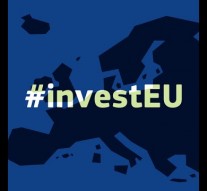
Investment plan for Europe launched by the Commission
Economy 25 July 2016On 14 July 2016, the European Commission improved and upgraded the Capital Markets Union (CMU) and the Investment Plan for Europe.
As well as we know, the European Union has been suffering from low levels of investment since the global economic and financial crisis began. To overturn this period, to support a new strategy of alternative sources of finance complementary to bank financing, in 2015 the Juncker Commission planned a specific plan called “virtuous triangle” based on reforms, responsible fiscal policies and investment.
On 14 July 2016, the European Commission improved and upgraded – by amendments to the European Venture Capital Funds (EuVECA) and the European Social Entrepreneurship Funds (EuSEF) – the Capital Markets Union (CMU) and the Investment Plan for Europe.
The amendments reform should be seen in the broader context of efforts intended to unlock investment in growing businesses. This involves the Investment Plan for Europe, which provides strategies to mobilise additional private investment by using public funds through the European Fund for Strategic Investment (EFSI). The aim is to support EU capital industry in order to make it self-sustaining and globally.
What are we talking about when we say EuVECA and EuSEF?
Concretely, EuVECA provides early funding to start-ups and early stage companies, forming an important source of long-term financing to young and innovative companies. In order to promote new areas of growth and move towards an innovation-led economy, there is a need to strengthen new avenues of financing to support start-ups and innovative SMEs.
Meanwhile, the EuSEF offers new opportunities for market participants to raise and to invest capital in social enterprises in a simplified way. EuSEF funds will benefit from the same steps taken for EuVECA funds in broadening the range of eligible managers and lowering the costs of managing the funds.
By the amendments of July, the Commission aspires to extend the range of managers eligible to access and manage EuVECA and EuSEF funds, as so to include larger fund managers (i.e. those with assets under management of more than €500 million); to expand EuVECA eligible assets, to allow investment in small mid-caps, and SMEs listed on SME growth markets; to simplify registration processes and determining the minimum capital to become manager; to fixed the minimum investment of € 100,000 for non-professional investors to ensure adequate consumer protection.
What’s next?
The work cannot stop now. For this reason, the Commission plans to publish soon a call for expression of interest from private sector asset managers interested in managing the fund-of-funds; to propose tax incentives and best practice. It also envisages developing a strategy to provide technical assistance, to develop and improve market-based finance, including venture capital.
The Commission bets in venture capital, crowd-funding and market-based financing by creating more opportunities for investors, such as connecting financing to the real economy; fostering a stronger and more resilient financial system; deepening financial integration and increasing competition.






